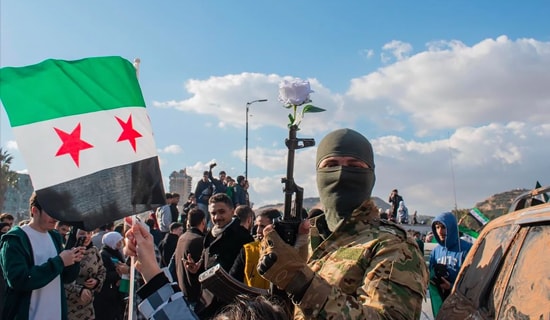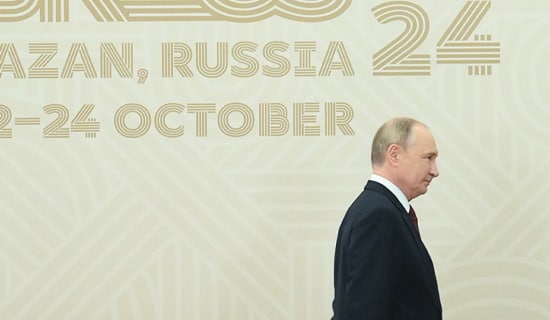On November 5, 2024, the day of the U.S. presidential election, Qatar will hold a referendum to approve a series of constitutional amendments initiated by the Emir of Qatar, Tamim bin Hamad Aal Thani, including an amendment that cancels parliamentary elections in the country. Such elections were held in Qatar only once, in October 2021, apparently as part of the country's efforts to improve its image ahead of the World Cup, which it hosted one year later, in 2022. On October 28, 2024, the Qatari parliament – which even today is not a democratic body – unanimously approved the cancelation of the elections as part of ratifying these constitutional amendments, and tomorrow this decision is expected to be confirmed in a referendum.
The constitutional amendment pertaining to parliamentary elections stipulates that the appointment of parliament members is the sole prerogative of the Emir. In a speech at the opening of the parliamentary session on October 15, 2024, the Emir announced that the experiment of the 2021 parliamentary elections had failed, hinting at concerns in the emirate regarding the potential impact of parliamentary elections on the social fabric of the ruling Qatari class.
The decision to cancel the elections sparked ridicule from Arab social media users, who mocked Qatar's pretensions of democracy. Many of them wondered why this decision was not covered by Qatar's Al-Jazeera network, which frequently criticizes anti-democratic measures in other Arab states and in the West, and in fact used this issue extensively to fan the Arab Spring protests that began in 2011.
It should be noted that the Qatari constitution, approved in a 2003 referendum, established that the Qatari regime is "democratic" and that the country's parliament comprises 45 members, 30 of them elected by the public in direct and secret ballot elections and 15 of them appointed by the Emir. However, although several dates were set over the years for a parliamentary election, it was repeatedly postponed on various pretexts and, as mentioned, was eventually held only once, in October 2021, a year before Qatar's hosting of the World Cup.
Despite the constitutional definition of the Qatari regime as "democratic," Qatar is not a democracy and lacks any institutional or cultural foundation for democracy. In fact, ahead of the 2021 election, there were significant doubts about the emirate's ability to conduct a proper electoral process due to various political, social and cultural barriers that hinder this.[1] Moreover, ahead of these elections the Qatari regime took a series of measures that detracted from their democratic character. The Election Law, issued by Emiri decree on July 29, 2021, denies the right to vote and run for parliament to the majority of Qatari residents, namely to all non-citizens, who comprise the majority in Qatar, and also to many Qatari citizens. The law grants these rights only to Qatari citizens aged 18 and over who have a grandfather born in Qatar. [2] In addition, not a single woman was elected in the 2021 elections, giving rise to criticism of the patriarchal culture prevailing in the country.[3]

Graphic in Qatari daily calls to approve the constitutional amendments, including the cancelation of the elections. The ballot says "yes" and the box is labeled "The Constitution" (Al-Sharq, Qatar, November 4, 2024)
This report presents the measures taken in Qatar to cancel the parliamentary elections, and reactions to this decision from Arab social media users.
Qatari Emir: The Parliamentary Elections Were A Failed Experiment; The Qatari Parliament Is Not Representative As In A Democratic Regime
In his speech at the opening of the parliamentary session on October 15, Emir Tamim bin Hamad Aal Thani announced his intention to submit to parliament a proposal for constitutional amendments prepared by the government, which includes the cancellation of parliamentary elections in the emirate. He explained this move by saying: "I tell you honestly that I called for parliamentary elections [at the opening of the November 2020 parliamentary session] despite reservations from many loyal citizens. I said at the time that this was an experiment, and that we would evaluate it and draw conclusions from it. [The results of the experiment] have led us to propose constitutional amendments [including the cancellation of the elections]."
The Emir addressed the regime's concerns about the impact of parliamentary elections on the relationship among Qatar's ruling families and tribes, stating: "We are all one family in Qatar. The competition among candidates for membership in parliament [thus] took place within families and tribes. There are differing assessments regarding the impact of this competition on our customs, traditions, and social-family institutions and their cohesion. This touches upon identities, [yielding results], which we do not want and which could lead to undesirable circumstances over time." He added: "The Shura Council [i.e., the Qatari parliament] is not a representative parliament as in a democratic regime. Its status and powers will not be affected, whether its members are elected or appointed." The Emir stated further that, once approved by the parliament, the constitutional amendments would be put to a referendum.[4]

The Qatari Emir speaks at the opening of the current parliamentary session (Raya.com, October 15, 2024)
Qatari Parliament Approves Cancellation Of Elections
As expected, on October 28 the Qatari parliament unanimously approved the constitutional amendments. The amendment to Article 77 of the constitution established that "the parliament shall consist of no less than 45 members, who shall be appointed by Emiri decree." (As stated, the article previously stipulated that parliament comprises 45 members, 30 of them elected by the public in direct and secret ballot elections and 15 appointed by the Emir). In a statement, the parliament noted that the amendments had been approved "after reviewing the report of the special committee tasked with considering amendments to several articles of the constitution and after productive and in-depth discussions, based on the parliament members' commitment to enhancing national unity, upholding the principles of justice and the rule of law, and realizing the supreme interest of the state in accordance with the directives of Emir Tamim bin Hamad Aal Thani."[5]
Social Media Users: Why Is Al Jazeera Ignoring The Cancellation Of Elections In Qatar?
The cancellation of parliamentary elections in Qatar sparked sarcastic reactions on social media, including criticism of Qatar's Al-Jazeera channel for failing to cover anti-democratic moves in the country, although it frequently criticizes the lack of democracy in other Arab countries, and in fact used such criticism extensively to fuel the Arab Spring protests.
One user shared excerpts from the Emir's speech in which he addressed the constitutional amendments and specifically the cancellation of parliamentary elections, and commented: "A question for the champions of democracy and for the Al-Jazeera mouthpieces that supported the Arab Spring charade and fought to spread chaos in the name of democracy and in the name of giving voice to the oppressed peoples: [Why] haven't we heard your voice about the proposed constitutional amendments in Qatar and the reinstatement of [the method] whereby MPs are appointed [by the Emir] rather than elected...?"[6]
Egyptian user "M. Farouk" shared headlines about the cancellation of elections in Qatar, and wrote: "[These are] reports you won't see on Al Jazeera. Just imagine [what Al-Jazeera would have said] if this was happening in Egypt, for example?!... Why don't the Qatari people rebel against their subjugation by this [ruling] family, against its exclusive control of power, jobs and resources, and against [the fact] that it gave the U.S. half of Qatar's territory for establishing its bases[?]!"[7]

The post by Egyptian user "M. Farouk"
User "Zakaria" wrote: "The Emir of Qatar published a law today: The members of the castrated parliament will be appointed by the Emir. Previously, two thirds [of its members] were elected. The Emir can dissolve the parliament at his whim, and we aren’t allowed to ask why?! The problem is that Al-Jazeera covers elections in the U.S., Turkey and the U.K... But what about elections in Qatar[?]"[8]
A Moroccan Facebook user hinted that the only parliamentary election ever held in Qatar, on October 2021, had been just for show, part of the efforts to market the 2022 World Cup. He wrote: "Qatari joke of the day: The Emir of Al-Jazeera has decided to drop 'the opinion and the other opinion' [the Al-Jazeera motto] and amended the constitution to give himself exclusive authority to appoint members of parliament. This is after, in the [October 2021] elections, two thirds of [the MPs] were elected! He also added that he would be entitled to dissolve the parliament without giving a reason. The World Cup is over; let’s go back into the cattle pen!"[9]
User "Saarrio" wrote: "...If someone convenes Al-Jazeera and its presenters [and asks them], 'Why do you demand democracy in other countries while you yourselves live in a state controlled by a single family[?],' they will reply that Qatar's constitution proclaims it to be a democracy. This is the easiest excuse [to avoid giving a real answer]. Haha!"[10]
Another user wrote: "The Qatari Emir has officially announced that Qatar is giving up on elections and going back to appointing MPs, on the pretext that this enhances justice and equality. Al-Jazeera is interested in democracy only in other countries!!"[11]
[1] See MEMRI Inquiry & Analysis No. 1554, "Qatari Journalists: Lacking A Democratic Infrastructure And Political Parties, Qatar Is Not Ready To Hold Parliamentary Elections," February 2, 2021.
[2] The Election Law is based on the 2005 Citizenship Law, which denies political rights to many Qataris, including to members of the Aal Murrah tribe, which was at the center of the opposition to the Election Law. See MEMRI Inquiry & Analysis No. 1596, "Anti-Democracy Measures In Advance Of Qatar's First Parliamentary Elections: New Law Limits Voting And Candidacy Rights," August 12, 2021.
[3] See MEMRI Inquiry & Analysis Series No. 1601 – "After No Women Were Elected In Qatar's First Parliamentary Elections, Qatari Public Figures And Journalists Blame 'Tribalist Patriarchal Society'" – October 14, 2021.
[4] Al-Raya (Qatar), October 16, 2024.
[5] Shura.qa, October 28, 2024.
[6] X.com/Abu_laarbi, October 16, 2024.
[7] X.com/EgyptianScorpi8, October 29, 2024.
[8] X.com/zakaria08655733, October 29, 2024.
[9] Facebook.com/akchor, October 28, 2024.
[10] X.com/saarrio, October 28, 2024.
[11] X.com/daddo_dani74374, October 16, 2024.





